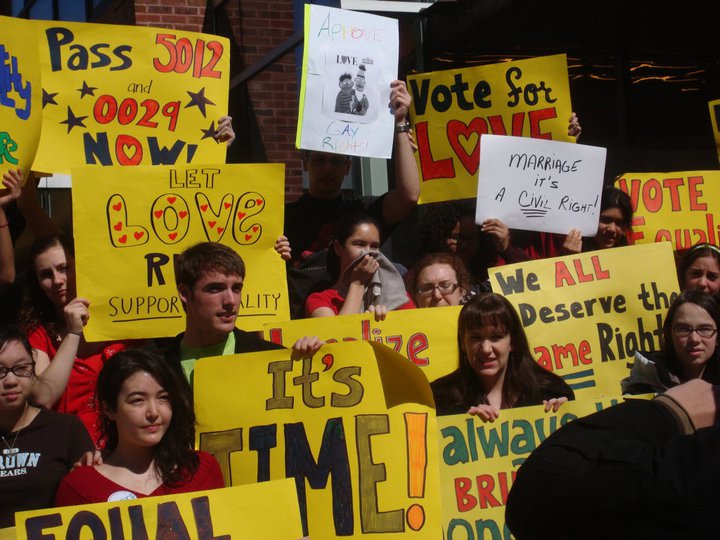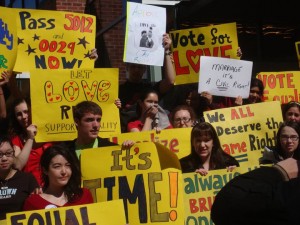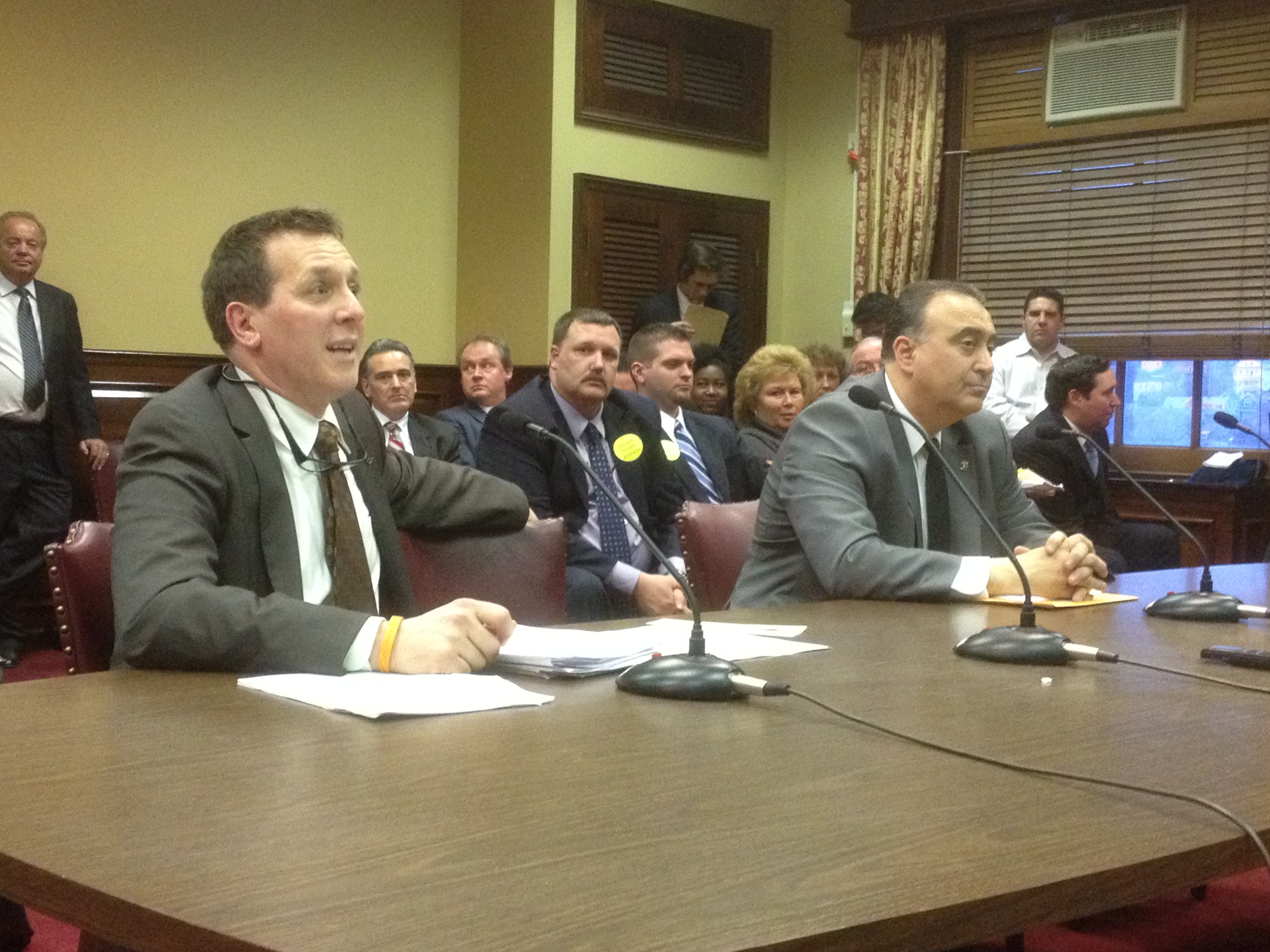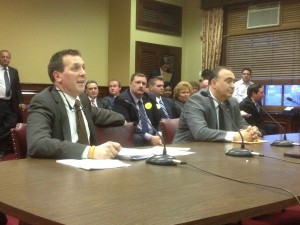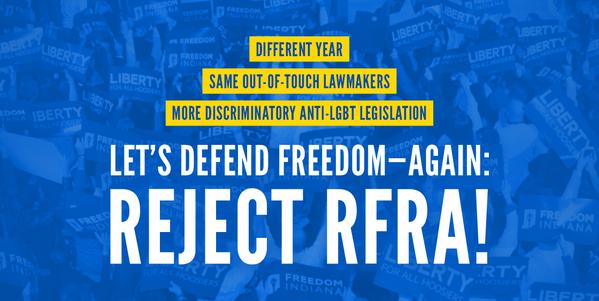 Rhode Island needs to repeal its version of the RFRA (Religious Freedom Restoration Act). We need to do this because our state is the birthplace of religious liberty and freedom of conscience. We need to do this because it is integral to the very DNA of Rhode Island that we brook no persecution or privilege based on deeply held religious convictions.
Rhode Island needs to repeal its version of the RFRA (Religious Freedom Restoration Act). We need to do this because our state is the birthplace of religious liberty and freedom of conscience. We need to do this because it is integral to the very DNA of Rhode Island that we brook no persecution or privilege based on deeply held religious convictions.
And if these are not reasons enough, we need to do this for the economy.
When Governor Mike Pence signed Indiana’s version of the RFRA into law, opening the floodgates for potential discrimination against LGBTQ persons, public reaction was swift. An IndyStar headline reads, “Businesses fear costly backlash from new religious freedom law.” The NCAA, Salesforce, Angie’s List and the gaming convention Gen Con are all seriously reconsidering their business relationships with Indiana. George Takei has called for a boycott. And don’t expect Apple to be investing in Indiana anytime soon.
 When Rhode Island Speaker Nicholas Mattiello promised to focus on “jobs and the economy” rather than social issues he presented a false dichotomy. The economy does not exist in a socially neutral vacuum. Companies interested in hiring talented people will avoid setting up shop in states with discriminatory laws and practices because social issues are economic issues, and vice versa.
When Rhode Island Speaker Nicholas Mattiello promised to focus on “jobs and the economy” rather than social issues he presented a false dichotomy. The economy does not exist in a socially neutral vacuum. Companies interested in hiring talented people will avoid setting up shop in states with discriminatory laws and practices because social issues are economic issues, and vice versa.
Repealing Rhode Island’s RFRA in this climate makes good financial sense: Just as businesses respond negatively to discrimination and religious zealotry, businesses will respond well to a renewed commitment to equality, freedom and acceptance.
The differences between Rhode Island’s and Indiana’s RFRA laws are mostly cosmetic. We passed our version of RFRA in 1993, and it closely matches the federal law. Since RFRA was passed federally, versions of the law adopted by the states over the last 22 years have morphed from the goal of protecting the rights of religious minorities to allowing religious minorities the right to discriminate based on their beliefs. This is in keeping with the Supreme Court’s interpretation of RFRA, which depended on the law in deciding Burwell v. Hobby Lobby, which granted the chain craft store the right to ignore federal mandates that they believed went against the religious convictions of the company’s stockholders.
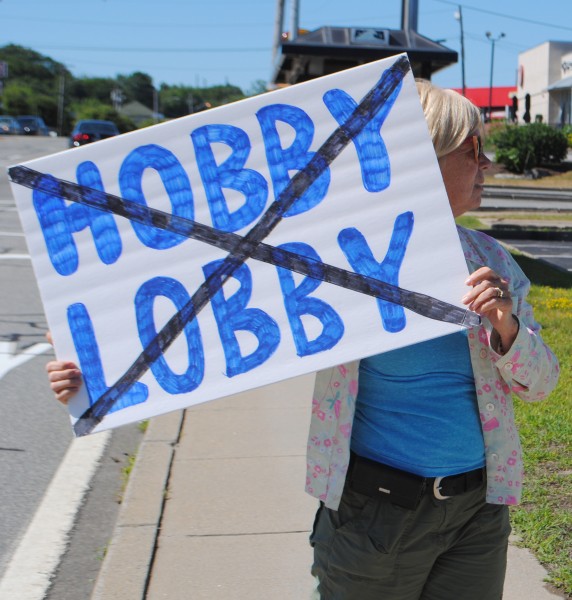 When the federal RFRA was passed, it was a bipartisan attempt to strengthen First Amendment protections of religious liberty that the Supreme Court had undermined in Employment Division v. Smith. In that case a Seventh-Day Adventist was denied unemployment insurance by the government because she refused to work on Saturday. When the Supreme Court ruled for the government, there was a demand for greater protections for minority and mainstream religious practices.
When the federal RFRA was passed, it was a bipartisan attempt to strengthen First Amendment protections of religious liberty that the Supreme Court had undermined in Employment Division v. Smith. In that case a Seventh-Day Adventist was denied unemployment insurance by the government because she refused to work on Saturday. When the Supreme Court ruled for the government, there was a demand for greater protections for minority and mainstream religious practices.
Josh Blackman, assistant professor of law at the South Texas College of Law, analyzed the differences between the federal RFRA and Indiana’s and came to the conclusion that “Indiana, as well as Arizona’s RFRAs are very similar to the Federal RFRA.” The federal RFRA, Indiana’s RFRA and Rhode Island’s RFRA, though different in wording and passed at different times, are not so different in the ways in which they have been analyzed and applied.
Professor Marci Hamilton, “one of the United States’ leading church/state scholars,” has a website that tracks the history of the RFRA laws, and maintains that “RFRAs do not protect First Amendment freedoms. They are extreme, statutory versions of our constitutional rights.”
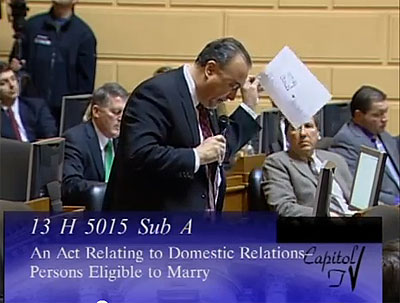
To the best of my research Rhode Island’s RFRA has not been cited in any RI Supreme Court cases. That isn’t to say that the law has had no effect. Elements of the RFRA can be found in the so-called “Corvese Amendment” attached to the 2011 Civil Union Bill, now invalidated since the passage of marriage equality. The Corvese Amendment was crafted to allow discrimination against couples in civil unions, just as Indiana’s RFRA is designed to allow people in that state to discriminate against LGBTQ people.
As long as we leave the state level RFRA on the books, it will taint Rhode Island’s legislature and judiciary. Rather than protect religious freedoms and freedom of conscience, Rhode Island’s RFRA creates a situation where our laws could too easily be interpreted as a “right to discriminate.” Repealing the law will send a signal to the world that Rhode Island is once again ready to be a leader in true religious liberty. We can show that we are a state of tolerance, diversity and acceptance.
Imagine Apple CEO Tim Cook tweeting about how great Rhode Island is, or Gen Con relocating its gaming convention here. You can’t buy that kind of publicity, but the General Assembly could get it free by simply acting in the best tradition of Rhode Island history and repealing the RFRA.


